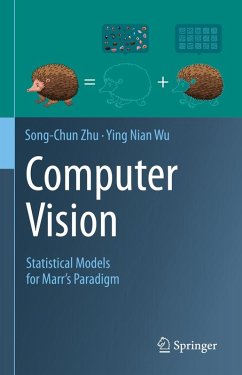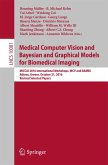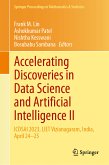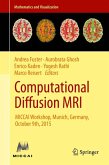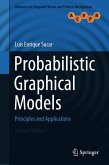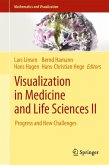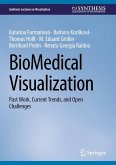As the first book of a three-part series, this book is offered as a tribute to pioneers in vision, such as Béla Julesz, David Marr, King-Sun Fu, Ulf Grenander, and David Mumford. The authors hope to provide foundation and, perhaps more importantly, further inspiration for continued research in vision. This book covers David Marr's paradigm and various underlying statistical models for vision. The mathematical framework herein integrates three regimes of models (low-, mid-, and high-entropy regimes) and provides foundation for research in visual coding, recognition, and cognition. Concepts are first explained for understanding and then supported by findings in psychology and neuroscience, after which they are established by statistical models and associated learning and inference algorithms. A reader will gain a unified, cross-disciplinary view of research in vision and will accrue knowledge spanning from psychology to neuroscience to statistics.
Dieser Download kann aus rechtlichen Gründen nur mit Rechnungsadresse in A, B, BG, CY, CZ, D, DK, EW, E, FIN, F, GR, HR, H, IRL, I, LT, L, LR, M, NL, PL, P, R, S, SLO, SK ausgeliefert werden.
Es gelten unsere Allgemeinen Geschäftsbedingungen: www.buecher.de/agb
Impressum
www.buecher.de ist ein Internetauftritt der buecher.de internetstores GmbH
Geschäftsführung: Monica Sawhney | Roland Kölbl | Günter Hilger
Sitz der Gesellschaft: Batheyer Straße 115 - 117, 58099 Hagen
Postanschrift: Bürgermeister-Wegele-Str. 12, 86167 Augsburg
Amtsgericht Hagen HRB 13257
Steuernummer: 321/5800/1497
USt-IdNr: DE450055826

